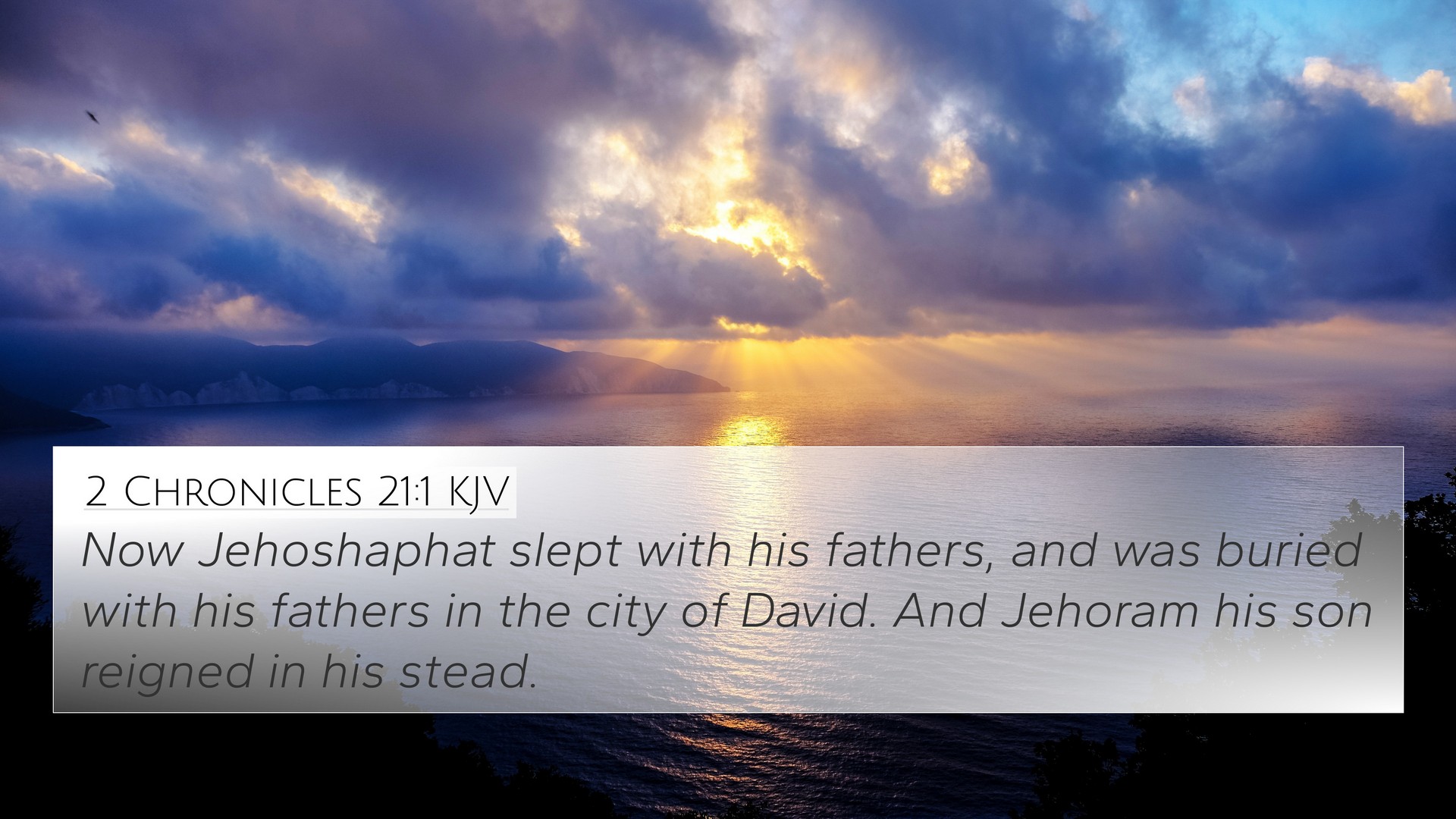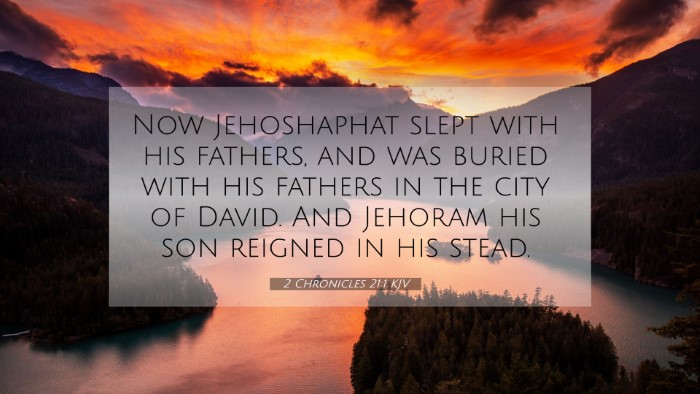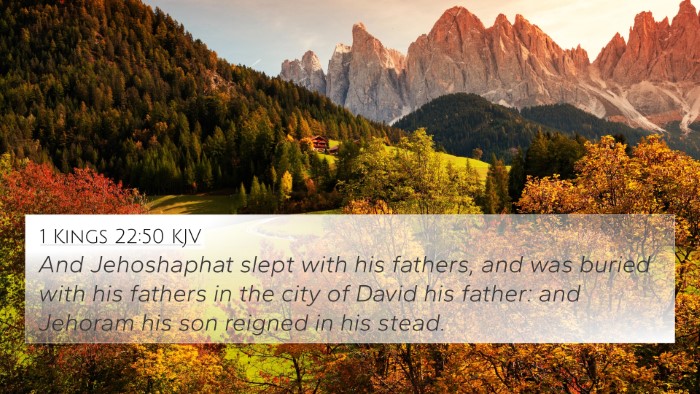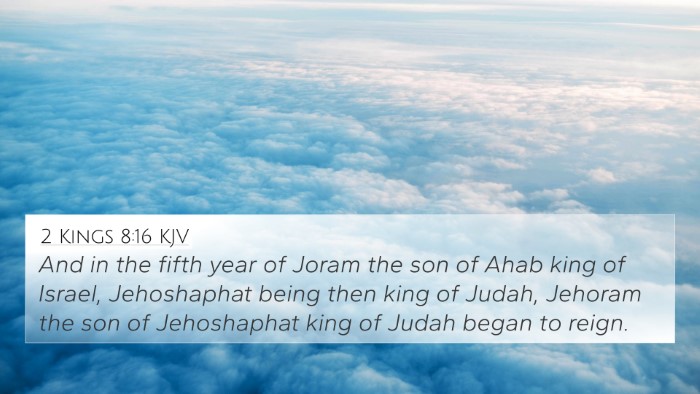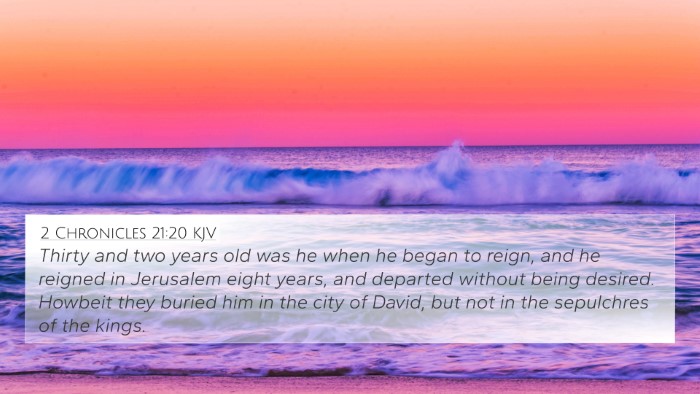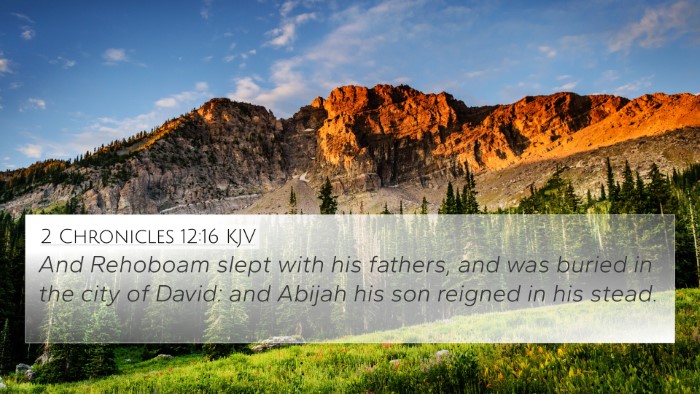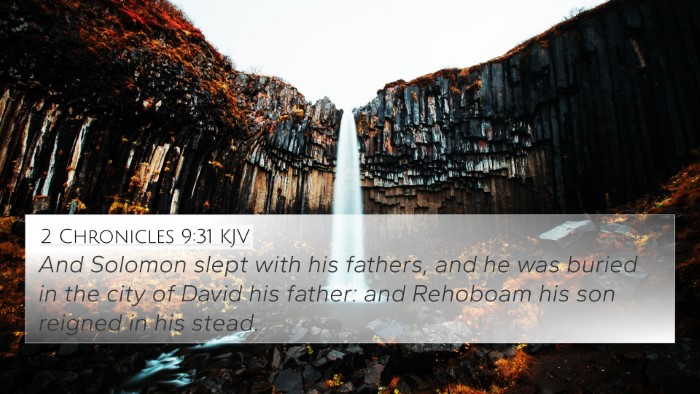Understanding 2 Chronicles 21:1
2 Chronicles 21:1 states: "And Jehoshaphat slept with his fathers, and was buried with his fathers in the city of David: and Jehoram his son reigned in his stead."
This verse serves as a transition point in the narrative of the Kings of Judah. The death of King Jehoshaphat marks the end of a significant reign characterized by religious reforms and military successes, setting the stage for the problematic rule of his son Jehoram.
Historical Context
Matthew Henry notes that Jehoshaphat was a good king who sought to please God, contrasting sharply with the generally negative depiction of his son. Jehoram's ascension illustrates a shift towards idolatry and moral decline in Israel's leadership.
Thematic Analysis
- Legacy of Leadership: The passing of one king to another often signifies the continuation or collapse of spiritual fidelity.
- Parent-Child Dynamics: Albert Barnes emphasizes the implications of Jehoshaphat's legacy on Jehoram. It signifies how leadership qualities can be inherited, good or bad.
- Historical Significance: Adam Clarke suggests understanding this transition not only in terms of the kings but as part of God’s larger plan for His people, serving as a warning of the dangers of deviating from divine principles.
Key Themes Explored
- Divine Judgment: Jehoram's reign is ultimately characterized by God's judgment due to his unfaithfulness.
- Family and Inheritance: This verse opens discussion about the spiritual legacy one leaves behind and how it can impact future generations.
Cross-References
This verse connects to several other Biblical texts that enrich its understanding:
- 1 Kings 22:50: Further elaborates on Jehoshaphat’s death and the continuation of Judah's royal line.
- 2 Chronicles 20:30: Reminds us of Jehoshaphat's peace and prosperity, contrasting the turmoil under Jehoram.
- 2 Kings 8:16-24: Provides additional details on Jehoram's reign and actions, clarifying his wickedness.
- 2 Chronicles 22:1: Discusses the immediate aftermath of Jehoram's ascension, emphasizing familial connections.
- 2 Chronicles 24:17-22: Offers a broader view of the chaos in Judah's leadership post-Jehoram.
- Exodus 20:5-6: Reflects on the implications of generational faithfulness and judgment.
- Proverbs 13:22: Suggests the importance of leaving a godly legacy for descendants, resonating with Jehoshaphat's mixed legacy.
Conclusion
2 Chronicles 21:1 is not just a historical account, but a poignant reminder of the importance of righteous leadership and the consequences of turning away from God. The transition from Jehoshaphat to Jehoram poses crucial questions about legacy, accountability, and divine judgment in leadership.
